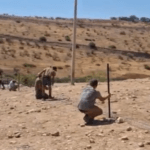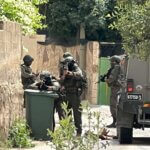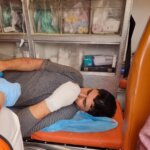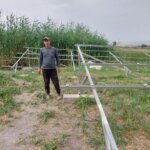Villagers remain steadfast in face of mass demolitions
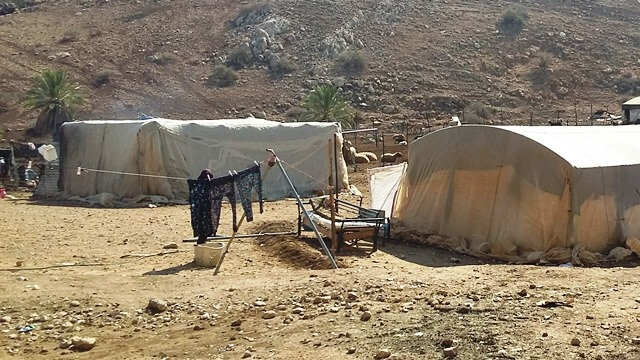
Living under the daily threat that their home will be demolished is having a devastating effect on families in Al Maleh area of the northern Jordan Valley.
In the words of Qadri Daram from Ein El Hilwe:
“Our children don’t even have the right to enjoy life. They cry during the night. They are scared. I think every child in the area needs a psychologist.”
Israeli forces have issued demolition orders to Umm Jamal and Ein El Hilwe villages (in Al Maleh area of the northern Jordan Valley) stating their plans to demolish the homes of around 300 Palestinians.
Israeli drones have been flying overhead on surveillance missions and local people are being regularly stopped for ID checks. Despite the frustration and the difficulties of recent weeks, the residents of both Umm Jamal and Ein El Hilwe villages are steadfast, determined to stay in their lands and face the coming harassment of the Israeli occupation forces. Their reasons are simple, as Qadri explains:
“My grandfather and my father both used to live here before me and before the Israeli occupation. My family has owned this land since so long ago”.
The families of Al Maleh are asking the international community for help and solidarity in their search for a peaceful and safe existence. The demolition orders state that they could happen any time after 9th November. The families fear that the occupation forces will wait for the wettest and coldest weather to carry out the demolitions when they are least able to cope, as this has been their experience in recent years.
Appeal for support
We are urging everyone to keep contacting their elected representatives, calling on them to apply pressure to get the demolitions stopped.
Demolition orders hidden under stones
The families’ story is a perfect example of what the life in Jordan Valley can mean. None of the residents have been directly informed by the Israeli military forces about the plans to demolish their homes. On 1st November 2017 the demolition orders were left as a simple piece of paper under a rock close to their homes. The notes were not noticed until 9th November, which means they had very limited time to find a solicitor and try to stop the demolitions.
The demolition orders are the latest action in an on-going campaign by occupation forces and settlers to ethnically cleanse Palestinians from the Jordan Valley so it can be annexed to Israel.
Qadri and his family have lived on this land for generations, now he and his wife & children have to face many difficulties. They are not allowed to build anything on their own land and are forced to live without water and electricity, while the nearby illegal Israeli settlement of Maskiyot is expanding and has all the resources it requires.
Water
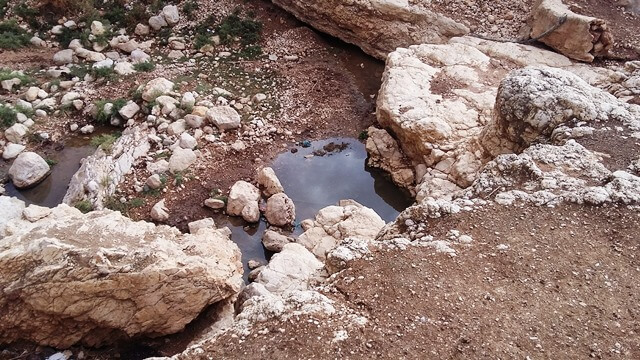
The water for the settlement is taken from a local spring standing next to Ein El Hilwe, while Qadri and his family have to buy water and transport it by tractor and portable water tank. Qadri’s family used to get their water for from the spring, but when the settlers came they attacked any Palestinians who were near the spring and started using it as a swimming pool, claiming it as a holy spring. This made the water dirty and not usable for drinking any more.
The water source is an on-going issue which represents a crucial point of the occupation state. Since 1967, Israel has used the control of water as an offensive tool to force Palestinians off their land.
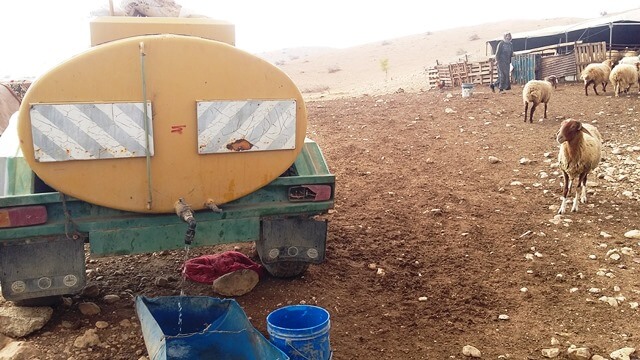
They have used a multitude of tactics over the years: refusing the permission for any kind of maintenance or improvement work to the Palestinian pump system; digging deeper wells nearby so groundwater sources dry up; damaging the area around the spring; allowing sewage from the settlements to flow into the water system; overexploiting the available water; targeting the water infrastructure during the military attacks; confiscating or destroying tanks that were used to collect rain water; or simply through direct sabotage by the settlers, such as water poisoning and damage to structures. All of these are constantly employed to ethnically cleanse the Palestinians from the Jordan Valley.
Military training
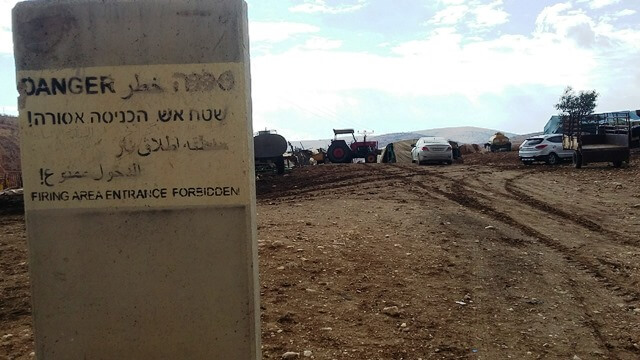
But the water is not the only aspect of the life targeted by the Occupation. Anyone who drives along the road from Tubas into the Jordan Valley can easily see the huge concrete blocks every few metres, warning that the land has been declared as a firing area where live weapons will be used. There is no concern for the residents of the Palestinian villages whose homes and grazing areas have become defacto military training areas. By putting up these warning signs pressure is put on Palestinian families to evacuate and leave the area, opening up space for settlement expansion.
Herding livestock
Due to the continuous restrictions of movement, the shepherds always have difficulty finding a place for their herd to pasture, which forces them to buy food for the sheep and goats. This adds a further burden when they are already struggling to survive.
Decimation of a population
Qadri’s story is just one of all the stories the residents of the valley can tell. Since the occupation in 1967, the situation has become increasingly worse. A basic demographic observation can illustrate this: before 1967 over 320,000 Palestinians were living in the Jordan Valley, today the number is around 60,000.
The future for Umm Jamal and Ein El Hilwe is very uncertain but still everybody is determined to resist and stay on their land. The families listen desperately to the news every day, waiting for answers.
Land taken by settlements
Qadri describes the constant harassment his family has had to face in the past decades: “They have been using the same strategy for years, to get the Palestinians out of here. But before the Oslo agreement (1995) there were more military bases here and soldiers, then the soldiers went away and the Israeli settlers arrived”. He is referring specifically to the disused military base that is hidden from view on the hill just above Ein El Hilwe, which is now on land controlled by Maskiyot settlement. The settlement was created by settlers coming from Gaza in 2005, who harassed and attacked the local people from the start. They have been able to expand and build more houses, taking more and more of the local Palestinian land, whilst Palestinians have faced constant demolitions and attacks.
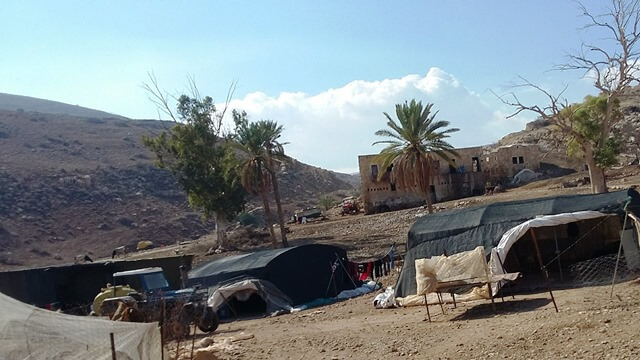
Along the road, in Umm Jamal, the change to people’s lives in the last 50 years in unimaginable. Historically this was a very beautiful area with a spring that evolved into a tourist resort with a hotel surrounded by palm trees and a spa. This all changed with the occupation of the West Bank in 1967, when Palestinians were systematically denied access to any basic infrastructure and experienced the absolute destruction of their economy.

